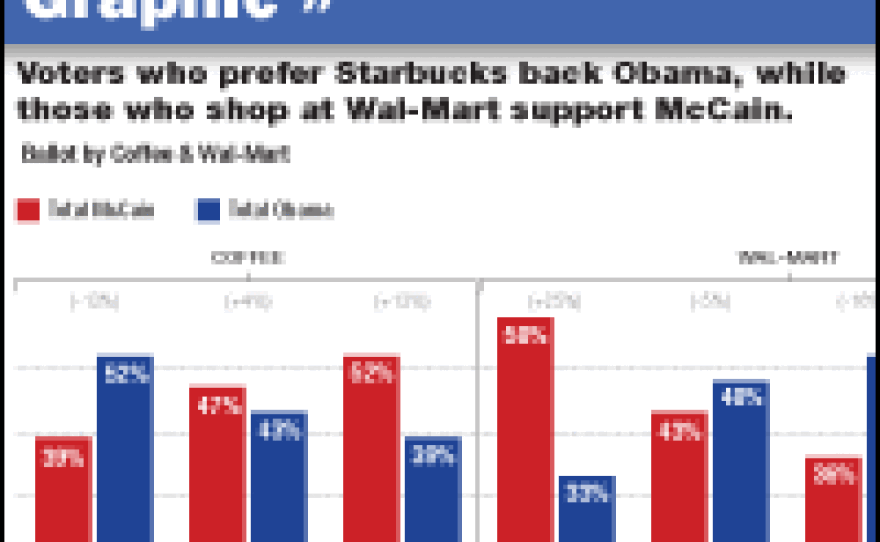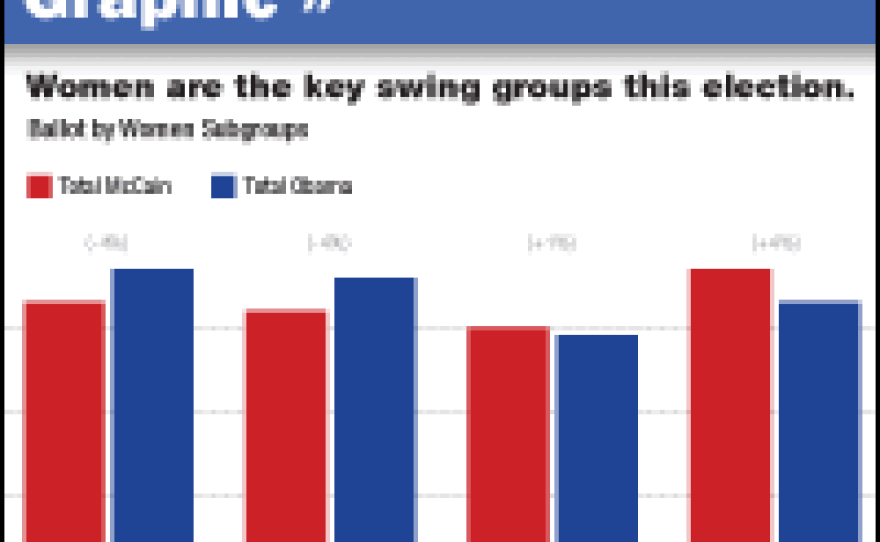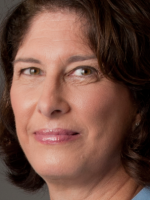
A new NPR poll in the handful of hotly contested states that will decide the presidential election shows intense interest in the presidential debates that begin Friday. The survey of 800 likely voters in 14 states shows the race is a dead heat, and pollsters and voters agreed that the debates will be key in shaping their decisions.
On a national level, though, another new poll shows Barack Obama beating John McCain by 9 points. The ABC News/Washington Post poll out Wednesday links Obama's surge to the country's financial turmoil. But in NPR's poll in battleground states, Obama still has work to do to meet voters' high expectations.
Shifting Battleground
Since the polling team last surveyed likely voters in August, a lot has changed. The number of battleground states has shrunk — from 19 to 14 — as Alaska, Georgia, North Dakota and Montana returned to their Republican roots.
In August, Obama led in the 14 states by 3 points. Now McCain leads in those states by 2, and the underlying political landscape has shifted a bit as well.
In August, by a 7-point margin, more voters identified themselves as Democrats. Now, in the battleground states, the Democratic advantage in party identification has shrunk to 2 points.
"These numbers are surprisingly encouraging to me, in terms of the party identification numbers, because Democrats had for a very long time held a very significant sustained advantage," said Republican pollster Glen Bolger. "They still have an advantage. Republicans still have to outperform with independents, but when voters looked at the two conventions, a bunch of them said, 'You know what? I guess I really am more like a Republican.' "
Stan Greenberg, the Democratic half of the polling team, said he thinks the Republican convention had a big impact.
"People watched closely, and I think it surprised us all on the level, but it's been dropping week by week. And the party ID also begins to shift back, but it's not there yet," Greenberg said.
The Clinton Factor
According to Bolger, something else is holding Obama back: He still hasn't won over enough of Hillary Clinton's voters.
"One thing that Obama tried to do in his convention was unite the Democratic vote behind him, and it still hasn't completely happened," Bolger said. "Our survey found that of the voters who said they voted for Hillary Clinton in the Democratic primary, 20 percent of them are still voting for John McCain."
One Clinton voter is Louis Brandenburg, a heavy-equipment operator from Avella, Pa. He said he has made up his mind for November.
"Yeah, I guess so: Mr. Obama, I guess. I have no choice," he said.
Even with little enthusiasm, Brandenburg — a Democrat — is sticking with his party. But plenty of his friends in southwestern Pennsylvania are very enthusiastic about Sarah Palin.
"There's a lot of them who are going to vote for her and McCain because of the hunting issue," he said. "I can't understand what happened to our party; it just seems like the Republican Party is always the ones who back hunters and sportsmen, and all we get from the other one is flack about hunting and guns."
Defining Debates
Even though the two candidates are viewed favorably by about the same number of people, there are some big cultural splits. Of people who get their coffee at Starbucks, 52 percent favor Obama while 39 percent prefer McCain. Of people who frequent Wal-Mart, 58 percent favor McCain while 33 percent prefer Obama.
James Coobler, a retiree living in central Florida, says he's undecided.
"Obama, I can't read. I think he tells you what you want to hear," Coobler said. "John McCain seems to be much more of a quiet person but is straightforward as far as what he says."
The deciding factor for him will be how the candidates perform in the debates, Coobler said. And both of NPR's pollsters agreed that the debates will be defining events.
Neither candidate is considered a great debater. Bolger had this advice for his candidate, McCain: "He has to be personable, he has to be focused, and he can't go off message."
In the NPR poll, voters have high expectations for Obama. By 49 to 34 percent, they expect him to do a better job in the debates. That's worrisome to Greenberg, who says Obama has to do more than just hold his own
"He has to show that he can be a commander in chief, that he has stature, that he can be on that stage, but he also has to lock in what we see in this poll," Greenberg said. "You know, by 20 points right now, people think Obama is likely to bring change; by 9 points they think he's better on the economy. I think Obama has a strong position going into the final debates and final month."
There is extremely high interest in the debates: Eighty-four percent of those polled said they are likely to watch Friday's debate in Oxford, Miss., and 62 percent said they are very likely to watch. Each candidate got 40 million people to watch his convention speech. The audience Friday could be another record breaker.
Copyright 2022 NPR. To see more, visit https://www.npr.org. 9(MDAzMjM2NDYzMDEyMzc1Njk5NjAxNzY3OQ001))







